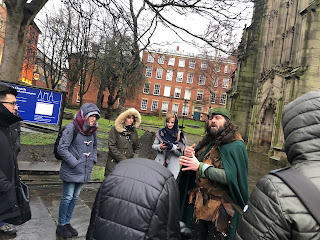Bonjour
Today, I am going to share with you the experience of the summer school we attended at Palermo Italy. As you can tell from the title of this post, the topic was dedicated to sustainable techniques and approaches for the transport infrastructure. It was organized by the University of Palermo, Italy with Mondello palace hotel as the venue. The hotel was right in front of a beautiful Sicilian beach which was another reason why it was an enjoyable experience.
Day 1 The first day was dedicated to lectures on the structural health monitoring and the topics included 3D surveying techniques applied to civil infrastructures and the tools required to measure the distress in the infrastructure. There were also interesting lectures on monitoring vibrations with different tools and technologies by celebrated speakers, which included:
The first day was dedicated to lectures on the structural health monitoring and the topics included 3D surveying techniques applied to civil infrastructures and the tools required to measure the distress in the infrastructure. There were also interesting lectures on monitoring vibrations with different tools and technologies by celebrated speakers, which included:
3D surveying techniques applied to Civil
Infrastructures
Fabio Remondino, FBK
How to Monitor Vibrations: Traditional tools
Alberto Di Matteo, UNIPA
How to Monitor Vibrations: Advanced tools
Chiara Masnata, UNIPA
UAV: Geomatics applications with infrared
thermography
Antonino Maltese, UNIPA
UAV photogrammetry for pavement distress
analysis: application and processing
Alessandro Scordo, UNIPA
Laura Inzerillo, UNIPA
Day 2
The second day we had lectures on the topic of sustainable technology and recycled materials used for pavements and introduction about the Life cycle assessment (LCA) in road pavements. These lectures provided us an insight on the aspects of sustainability in our respective projects and what we could do to assess the factors affecting sustainability. The LCA tools were also introduced in these lectures to give us an opportunity to quantify more precisely the sustainability of a project. The speakers included:
Recycling in asphalt pavements:
laboratory design and plant manufacturing
Orazio Baglieri, POLITO
Gaetano Di Mino, UNIPA
Recycling in asphalt pavements:
circular models
Gaetano Di Mino, UNIPA
Sustainability Assessment & EcoDesign
Davide Lo Presti, UNOTT
LCA and road pavements
Davide Lo Presti, UNOTT
Oumaya Marzouk, CEREMA
Day 3
The next day we had more detailed lectures on life cycle assessment using the open source tool named OPENLCA and another LCA tool called ECORCE that is used to quantify the different parameters affecting sustainability. We trained to use these tools ourselves to better understand the parameters and the working interface of the software. There was also a lecture by Prof John Harvey on the links between sustainability and asset management, explaining the importance of sustainable projects.
LCA software for ecodesign:
OpenLCA
Andreas Ciroth, Greendelta
ECORCE M
Agnes Jullien, IFSTTAR
LCA software: case studies from France
Chantal Proust, Polytech Orléans
Sustainability and asset management: studies from
USA and UK
John Harvey, UCDAVIS
Tony Parry, UNOTT
Sustainability and asset management: studies from
USA and UK
John Harvey, UCDAVIS
Tony Parry, UNOTT
Day 4
The fourth day started off with different case studies of projects and principles governing sustainability in those projects. This was followed by more interactive lectures on how to incorporate the sustainability concept in education and research. Different activities were carried out to come up with specific proposals to create more awareness of sustainability in our education system starting from primary education.
Social LCA: Principles and case studies
Andreas Ciroth, Greendelta
introducing sustainability in Education: Lectures
John Harvey, UCDAVIS /Agnes Jullien, IFSTTAR
Introducing sustainability in Education:
Workshop with fellows and scientists
John Harvey, UCDAVIS
Agnes Jullien, IFSTTAR
Day 5
The final day began with a lecture on the definitions of communication by Francesca Rizzuto, UNIPA. The rest of the afternoon we had an open session where all the SMARTI fellows had to present their work in 5 minutes to all the researchers and supervisors invited. Finally, to wrap up this summer school we had a gala dinner by the beautiful Sicilian beach.
So this was it for the post! I have provided the names of the presenters and their respective topics if any of you is working on the same topic and is looking for some help in the same field.
CIAO CIAO










